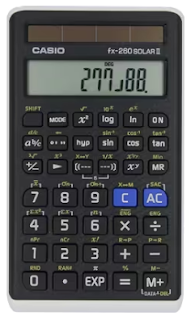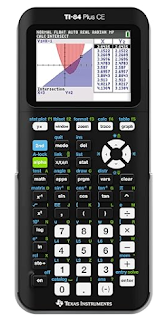When it comes to standardized tests like the ACT, every detail matters. One of the essential tools you'll need for this exam is a calculator. However, not all calculators are allowed on the ACT, and knowing which ones are permitted can make a significant difference in your test day experience. In this article, we'll explore the types of calculators that are allowed on the ACT and provide you with valuable insights to help you make the right choice.
The Role of Calculators in the ACT
Before we dive into the specific calculators that are allowed, let's understand why calculators are even permitted on the ACT. The ACT is designed to assess your knowledge and skills in various subjects, including mathematics. Calculators are allowed to help you perform complex calculations quickly and accurately, allowing you to focus on solving problems rather than spending excessive time on arithmetic.
Types of Calculators Allowed on the ACT
The ACT has specific guidelines regarding the types of calculators that are allowed. Here's a breakdown of the three categories of calculators permitted on the ACT:
1. Basic Calculators
Basic calculators are the most widely used and readily available calculators. These are simple devices that can perform fundamental arithmetic operations like addition, subtraction, multiplication, and division. They do not have advanced features like graphing capabilities or symbolic manipulation. Basic calculators are acceptable on the ACT and are often recommended for their simplicity and reliability.
2. Scientific Calculators
Scientific calculators are more advanced than basic calculators. They can handle a broader range of mathematical functions, including trigonometry, logarithms, and statistics. While scientific calculators are permitted on the ACT, it's important to note that certain advanced features found in some scientific calculators, such as graphing capabilities, are not allowed. It's essential to check your calculator's user manual to ensure it complies with ACT guidelines.
3. Graphing Calculators
Graphing calculators are the most sophisticated calculators in terms of functionality. They can create graphs, solve equations, and perform complex calculations. However, not all graphing calculators are allowed on the ACT. Only specific models are permitted, and they must adhere to the ACT's guidelines regarding memory and programmability.
Permitted Graphing Calculators on the ACT
To help you make an informed decision, here is a list of some popular graphing calculators that are allowed on the ACT:
It's essential to verify the current list of permitted calculators on the official ACT website, as it may change over time. Additionally, make sure that your calculator's memory is cleared before the exam, as stored programs or equations can lead to disqualification.
Advantages of Using the Right Calculator
Using an approved calculator on the ACT offers several advantages:
-
Efficiency: The right calculator can help you solve complex math problems quickly, saving you valuable time during the test.
-
Accuracy: Calculators reduce the risk of making calculation errors, ensuring that your results are as precise as possible.
In conclusion, choosing the right calculator for the ACT is crucial for your success on the test day. Understanding the types of calculators allowed and adhering to the guidelines can help you perform at your best. Be sure to visit the official ACT website for the most up-to-date information on approved calculators and any rule changes.

